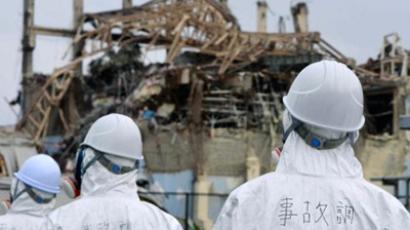Fukushima refugees shunned by Japanese society
Tens of thousands of Japanese refugees who have faced the triple horror of earthquake, tsunami and nuclear crisis now have another worry - their fellow citizens.
They were left in limbo – homeless and dependent on government handouts just to eat.“Everyone has been very kind to us. We have no complaints, the government has done everything they can to helps us find shelter. What worries us is the future. What are we going to do next? We feel anxiety,” Suenami Sato, a tsunami survivor, told RT.Japan is an island limited in space and there are thousands who need somewhere to live. That means creative solutions are needed.Families are given temporary refuge anywhere from school gymnasiums and classrooms, to high-rise hotels in Tokyo.In one of the many shelters in the Fukushima region tens of thousands of people are still displaced. They have fled the earthquake, the tsunami and now the nuclear disaster. Now they are having to endure the harsh judgements of their countrymen who see their choice to flee their homes in the disaster-hit area as “un-Japanese”. Those who have chosen to seek safety for themselves have been accused of betrayal by those left behind. “They also know it is dangerous to be there because of the radiation, but they have their lives there. Their children go to school there and they work there. So some of them feel we are privileged and spoiled and others think there is no danger that we need to go back soon,” explained Suenami Sato.And aside from the pressure to move back home, they are enduring additional torment in a cultural form of survivor’s guilt as well.“There is a typical Japanese reaction – they blame themselves for not being able to help those who died in the accident. This feeling exists in the Japanese people and especially for the people who have survived this disaster,” said Shigeru Iwasaki, a Fukushima shelter official.Survivors like Suenami Sato are left with mixed emotions – caught between an uncertain future and a broken past.“I think of life as a journey. I don’t think of it lasting forever. I just want to live my life fully. But when I think of the graves of our grandparents or the persons that brought us up I feel sad to leave the place I grew up.”














